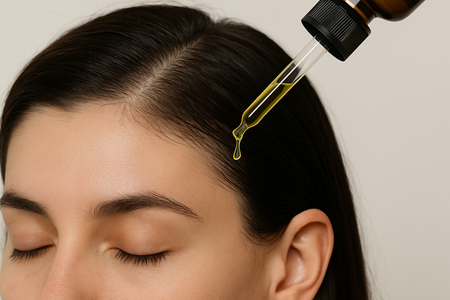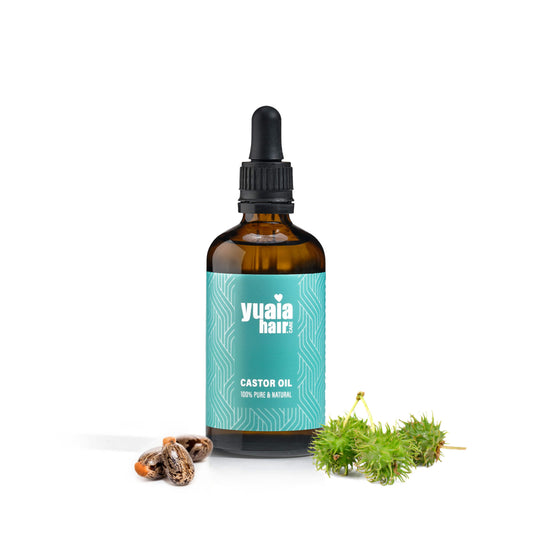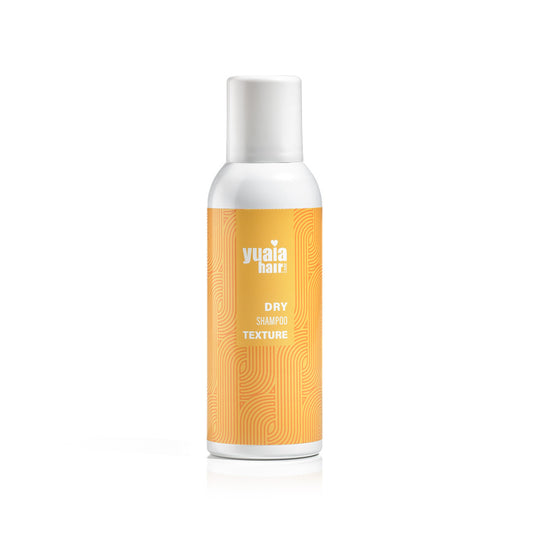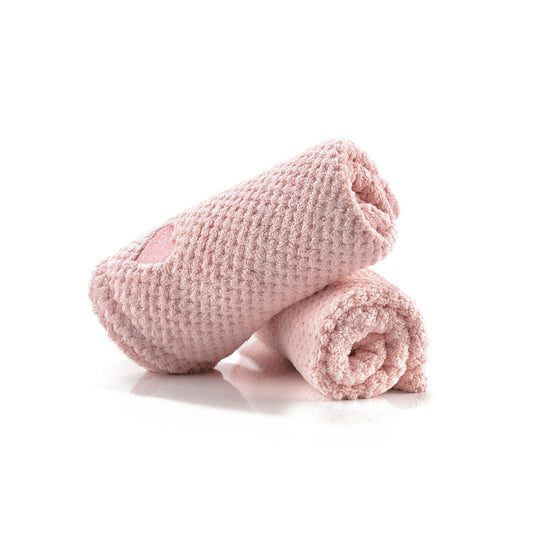
What Makes Castor Oil a Historical Favorite?
Castor oil has been used for centuries in various cultures for its therapeutic properties. Extracted from the seeds of the Ricinus communis plant, it is rich in ricinoleic acid, a fatty acid known for its anti-inflammatory and antimicrobial benefits. Historically, castor oil has been a go-to for promoting hair growth and maintaining scalp health, making it a staple in natural hair care practices.
How Can Castor Oil Benefit an Oily Scalp?
Unlike many oils, castor oil is less greasy and can help balance the scalp’s natural oil production. When applied correctly, it may regulate excess sebum, offering a more controlled and healthier scalp environment. To optimize its benefits, it's often recommended to mix castor oil with lighter carrier oils like jojoba or almond oil. This combination not only dilutes the thickness of castor oil but also enhances its ability to nourish the scalp without weighing hair down.
For those seeking a natural remedy to manage oily scalp conditions, incorporating castor oil into their routine might just be the answer. Its potential to balance oil production and improve overall scalp health makes it a promising option worth considering.
How Can Castor Oil Help Regulate Scalp Oiliness?
Castor oil stands out in the realm of hair care due to its unique composition, which is less greasy compared to many other oils. This makes it an intriguing option for those struggling with an oily scalp. By potentially balancing the scalp's natural oil production, castor oil can help manage excess sebum. The key is in its application: mixing castor oil with lighter carrier oils like jojoba or almond oil can enhance its effectiveness. This combination allows the oil to penetrate the scalp without creating a heavy, greasy feel.
Here's a simple guide to using castor oil for oily scalps:
- Mix one part castor oil with two parts of a lighter carrier oil.
- Apply the mixture to your scalp using your fingertips, ensuring even distribution.
- Leave it on for a few hours or overnight for deeper absorption.
- Rinse thoroughly with a gentle shampoo to remove any residue.
User testimonials often highlight the benefits of this approach, noting improvements in scalp health and a reduction in oiliness with regular use. While individual experiences may vary, the potential for a healthier scalp environment is a compelling reason to consider castor oil as part of your hair care routine.
What Are the Moisturizing and Antimicrobial Properties of Castor Oil?
The high concentration of ricinoleic acid in castor oil makes it particularly beneficial for individuals with oily scalps. This fatty acid is known for its anti-inflammatory and antimicrobial properties, which can help maintain a balanced scalp environment. By keeping the scalp hydrated, castor oil may prevent the overproduction of sebum, a common issue for those with oily scalps.
Moreover, the antimicrobial properties of ricinoleic acid can protect the scalp from infections, which are sometimes exacerbated by excess oil. This dual action of moisturizing and protecting the scalp can lead to noticeable improvements in overall scalp health, indirectly benefiting those with oily conditions.
What Does the Science Say About Castor Oil for Oily Scalps?
While there is limited direct scientific evidence specifically linking castor oil to oily scalp treatment, its known benefits for scalp health are noteworthy. The anti-inflammatory and moisturizing effects of castor oil are well-documented, suggesting that its use may contribute to a healthier scalp environment. This, in turn, can help in managing oiliness indirectly.
It's important to use castor oil in moderation and to follow proper application techniques. Overuse can lead to weighed-down hair, which may exacerbate the issue of oiliness rather than alleviate it. By blending castor oil with lighter oils and ensuring thorough washing, you can enjoy its benefits without the drawbacks.
How Should You Apply Castor Oil to an Oily Scalp?
Applying castor oil to an oily scalp requires a thoughtful approach to ensure that it enhances rather than exacerbates oiliness. Start by mixing a small amount of castor oil with a lighter carrier oil like jojoba or almond oil. This blend helps dilute the thickness of castor oil, making it easier to apply and wash out. Use your fingertips to gently massage the mixture into your scalp, ensuring even coverage. Allow it to sit for a few hours or overnight, then rinse thoroughly with a gentle shampoo to remove any residue. This careful application can help manage oil production while promoting a healthier scalp environment.
Can Castor Oil Be Part of a Holistic Scalp Care Routine?
Integrating castor oil into a comprehensive scalp care regimen can be beneficial for maintaining scalp health. By combining castor oil with other natural, non-comedogenic oils, you can create a balanced approach that supports overall scalp well-being. Consider using gentle, sulfate-free shampoos and conditioners to complement the oil treatment, ensuring that your scalp remains clean without being stripped of essential oils. For those looking to enhance their routine, tools like microfiber towels can help reduce friction and absorb excess moisture, further supporting a healthy scalp environment.
Frequently Asked Questions
Is Castor Oil Suitable for All Hair Types?
Castor oil can be beneficial for various hair types, but its thick consistency may not be ideal for everyone. Those with oily scalps should use it sparingly and always blend it with lighter oils to avoid weighing down the hair.
How Often Should I Use Castor Oil on My Scalp?
The frequency of castor oil application can vary depending on individual needs. Generally, using it once a week is a good starting point, allowing you to observe how your scalp responds and adjust accordingly.
Can Castor Oil Cause Hair Loss if Misused?
While castor oil itself does not cause hair loss, improper use—such as over-application or insufficient washing—can lead to buildup and potentially weigh down the hair. It's important to use it correctly to avoid any adverse effects.
 2-4 day UK delivery
2-4 day UK delivery
 25.000+ satisfied customers
25.000+ satisfied customers
 Satisfaction Guarantee
Satisfaction Guarantee






























